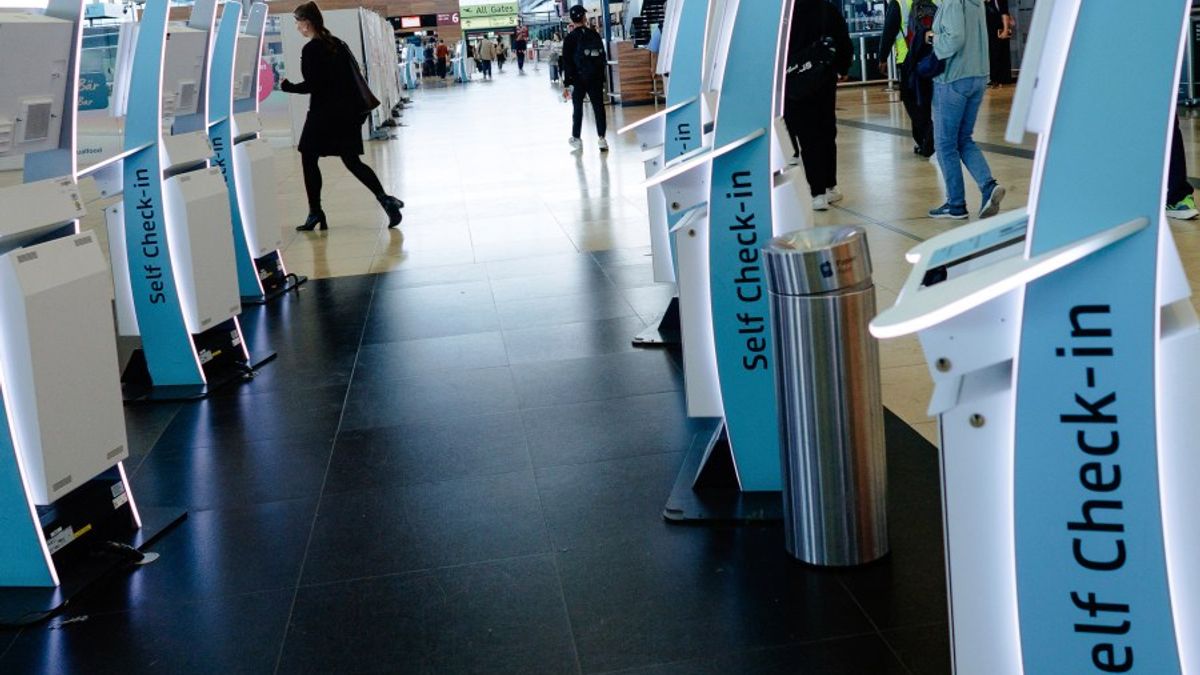CYBERATTACK
European Airports Grapple with Widespread Cyberattack Aftermath
A major cyberattack on a US-based software provider disrupted check-in systems at several European airports, causing widespread flight cancellations and delays.
- Read time
- 4 min read
- Word count
- 893 words
- Date
- Sep 21, 2025

🌟 Non-members read here
The ripple effects of a significant cyberattack on a key software provider continue to disrupt air travel across Europe, with passengers facing numerous flight cancellations and delays for a second consecutive day. Brussels Airport, appearing to be the most severely impacted, has requested airlines to cancel nearly 140 departing flights scheduled for Monday. This directive stems from the inability of a U.S.-based software system provider to deliver a secure version of its check-in system. The weekend saw 25 outbound flights canceled on Saturday and an additional 50 on Sunday from the Belgian capital’s main airport, highlighting the persistent challenges.
The widespread disruption began late Friday, affecting electronic systems at airports in major cities including Berlin, Brussels, and London. These technical failures led to severe bottlenecks at check-in counters, forcing airline personnel to resort to manual methods such as handwriting boarding passes or utilizing backup laptops to process passengers. While many other European airports remained unaffected, the incident underscored the vulnerability of integrated aviation systems to sophisticated cyber threats. The cyberattack specifically targeted software developed by Collins Aerospace, a company whose systems are crucial for passenger check-in, boarding pass and bag tag printing, and efficient luggage dispatch. On Saturday, the U.S.-based firm acknowledged a “cyber-related disruption” impacting its software at “select” European airports, initiating efforts to mitigate the damage.
The identity of those responsible for the cyberattack remains unclear. Experts are currently investigating whether the perpetrators are individual hackers, organized criminal groups, or state-sponsored actors. The European Commission, the executive body of the 27-nation European Union, confirmed that the incident did not compromise aviation safety or air traffic control systems. They noted there was no immediate indication of a broader or more severe attack, with the origin of the cyber incident still under active investigation by relevant authorities. This ongoing situation serves as a stark reminder of the critical importance of robust cybersecurity measures in the global aviation sector.
Extensive Flight Disruptions Persist at Brussels Airport
While London’s Heathrow and Berlin’s Brandenburg airports exhibited signs of returning to smoother operations by Sunday, Brussels Airport continued to grapple with significant challenges. The airport confirmed via email on Sunday that it had formally requested airlines to cancel approximately half of its 276 scheduled departing flights for Monday. This drastic measure was necessitated by Collins Aerospace’s continued inability to provide a secure and fully functional version of its critical check-in system. Airport officials anticipate that cancellations and delays will persist as long as manual check-in procedures remain unavoidable.
RTX Corp., the parent company overseeing Collins Aerospace, did not immediately respond to inquiries regarding the ongoing situation on Sunday. However, in a statement released Saturday, the aviation and defense technology firm acknowledged the issue, stating it was actively working to resolve it. The company clarified that the impact was confined to electronic customer check-in and baggage drop systems, adding that manual check-in operations could mitigate these disruptions. This reliance on manual processes, however, inevitably leads to slower processing times and increased operational complexities for airlines and airport staff.
Despite the significant setback, Brussels Airport reported managing 85% of its scheduled departures over the weekend. This relative success was largely attributed to the deployment of additional staff by airport partners and the continued functionality of self-service bag drop and online check-in options. Ihsane Chioua Lekhli, an airport spokesperson, clarified that the cyberattack exclusively affected computer systems at traditional check-in desks, leaving self-service kiosks operational. Teams have been diligently working to implement alternative backup systems and utilizing laptop computers to manage the influx of passengers, demonstrating a concerted effort to maintain operational continuity under challenging circumstances.
Industry Response and Passenger Guidance Amidst Cyber Crisis
Aviation authorities and airports across the affected regions have been actively advising passengers to verify their flight status before traveling to the airport and to consider alternative check-in methods. This proactive communication strategy aims to minimize inconvenience and manage expectations for travelers amidst the ongoing disruptions. The coordinated effort to disseminate information and provide guidance is crucial in mitigating further chaos and ensuring passenger safety and comfort.
Heathrow Airport issued a statement acknowledging the continued efforts to resolve and recover from Friday’s outage, which impacted the Collins Aerospace airline system essential for check-in procedures. The airport expressed apologies to all passengers who experienced delays but highlighted that, through collaborative work with airlines, the vast majority of flights were able to operate as scheduled. This collaborative approach among airport management, airlines, and software providers is critical in addressing complex system failures and restoring normal operations. The resilience of the aviation sector in responding to such unforeseen challenges is being thoroughly tested.
Similarly, Brandenburg Airport in Berlin displayed a rolling message on its website, informing passengers about extended waiting times due to the systems outage at a service provider. The message encouraged passengers to utilize online check-in, self-service check-in, and the fast bag drop service to expedite their journey. These recommendations underscore the strategic shift towards digital and automated processes, which, while efficient in normal circumstances, can also present single points of failure if not adequately secured against cyber threats. The incident serves as a critical case study for improving cybersecurity protocols across the global travel industry. The aviation industry faces constant pressure to balance technological advancements with robust security measures to safeguard against increasingly sophisticated cyberattacks that can paralyze critical infrastructure and disrupt millions of travelers’ plans.